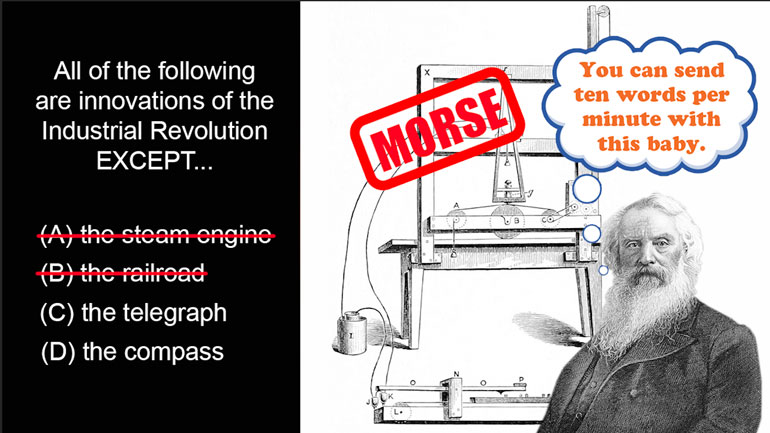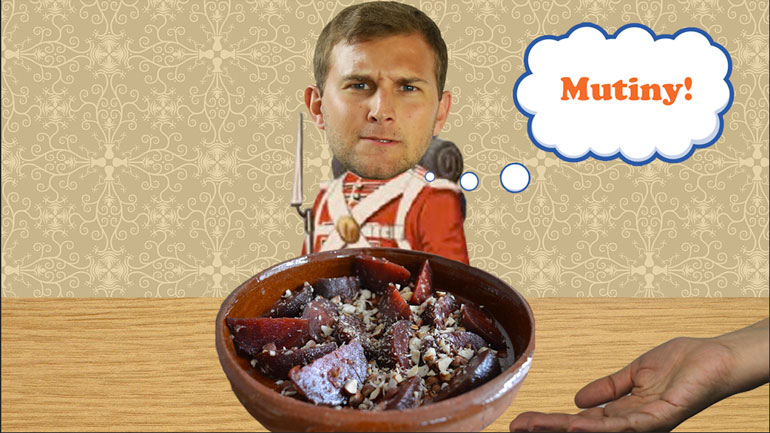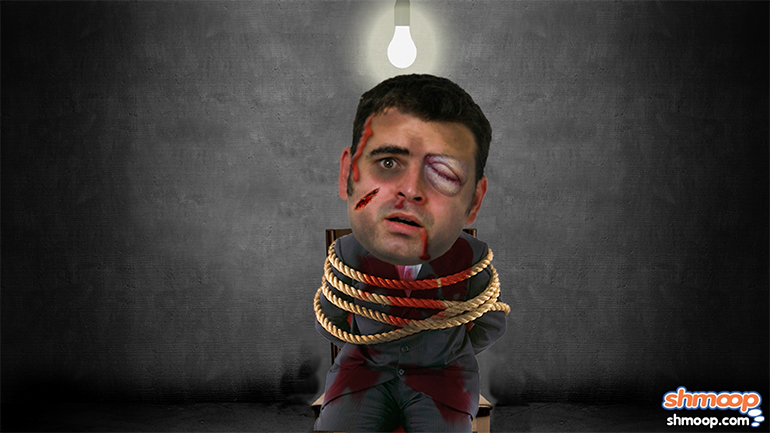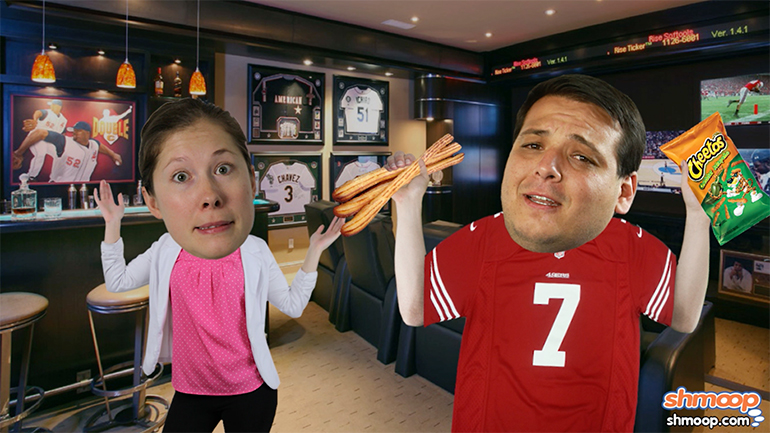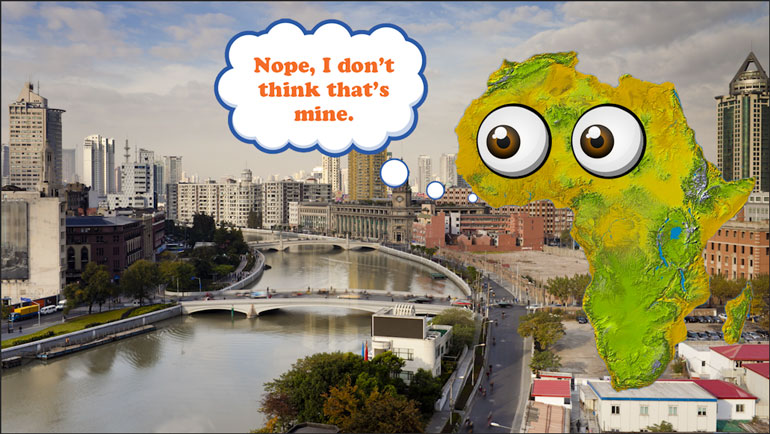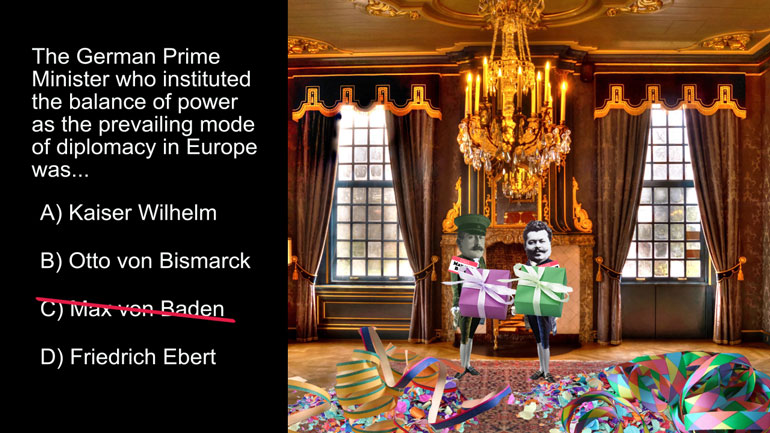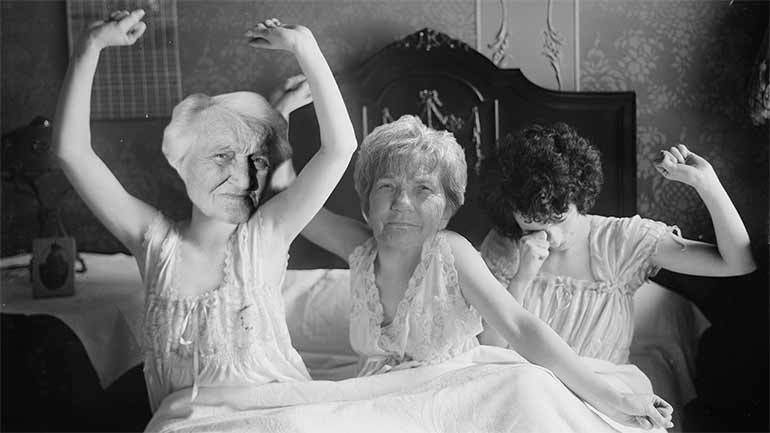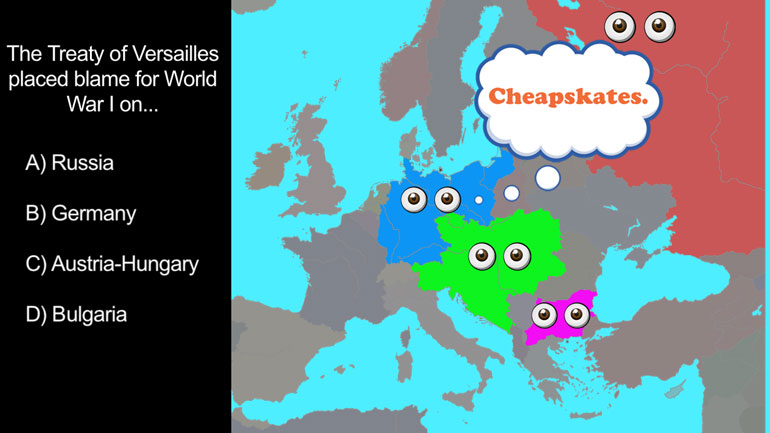ShmoopTube
Where Monty Python meets your 10th grade teacher.
Search Thousands of Shmoop Videos
Industrialization and Global Integration, c. 1750 to c. 1900 Videos 16 videos
AP World History 1.2 Industrialization and Global Integration, c. 1750 to c. 1900. All of the following are innovations of the Industrial Revolutio...
AP World History 4.3 Industrialization and Global Integration, c. 1750 to c. 1900. What was the immediate cause of the First Sino-Japanese War?
AP World History 2.5 Industrialization and Global Integration, c. 1750 to c.1900. What was the relationship between abolitionist movements and wome...
AP World History 3.5 Industrialization and Global Integration, c. 1750 to c. 1900 2 Views
Share It!
Description:
AP World History 3.5 Industrialization and Global Integration, c. 1750 to c. 1900. Who was the German Prime Minister who instituted the balance of power as the prevailing mode of diplomacy in Europe?
Transcript
- 00:04
And here's your shmoop du jour brought to you by the
- 00:05
balance of power which states that no single stage should be powerful enough [Big brother picking up younger brother]
- 00:09
to dominate all the others try explaining that to your older brother
- 00:13
here's our question the German Prime Minister who instituted the balance of
- 00:17
powers the prevailing mode of diplomacy in Europe was who and here's the potential
Full Transcript
- 00:23
answers..... well the key word to focus on
- 00:27
this question is instituted meaning that we're dealing with the beginning of
- 00:31
Germany's role as a major player in European politics knowing that we can [Person in cloak]
- 00:35
eliminate a couple of answers outright on the chopping block first is Max Von
- 00:39
Baden well Maxi was the last chanecellor of the German Empire before he saw
- 00:44
transform into a democratic parliamentary system during the end of [Soldiers laying on the ground]
- 00:47
the First World War seeing as this wasn't until the tail end
- 00:50
of 1918 he was way too late to the party so we can knock C off the list but hey
- 00:55
you're not alone scoot on over Max, there's a new German on the chopping
- 00:59
block Friedrich Ebert.... well Ebert took over for Von Baden and [Friedrich and Max's head on chopping block]
- 01:04
became the first president of Germany from 1919 until 1925 but if Max was too
- 01:09
late to Institute the balance of power then Friedrich definitely wasn't in the
- 01:12
running.... We're left with Kaiser Wilhelm and Otto von
- 01:18
Bismarck if we're talking early beginnings of
- 01:20
Germany's role was a major player Wilhelm might seem like the right choice [Wilhelm holding the German flag]
- 01:23
after all he was the first emperor of the German Empire as well as the King of
- 01:29
Prussia until 1888 unfortunately in this case being the first emperor wasn't
- 01:34
quite first enough as Otto here helped a pre-unified Germany turn into the very
- 01:39
Empire Wilhelm got to rule asserting the notion of balance of power in the
- 01:43
process Bismarck was a conservative Prussian politician who was appointed [Bismarck standing with politicians]
- 01:46
the minister-president of Prussia by Wilhelm in 1862 he helped form the
- 01:53
German Empire and appointed himself as Chancellor because well who wouldn't
- 01:57
tactful as he was Bismarck politic'd Germany out of harm's way by employing
- 02:01
the balance of power diplomacy a concept that stated no one should have enough [Balance of power in a fire]
- 02:06
power to dominate all the rest... whenever a state
- 02:09
looked to be getting too strong Bismarck alerted the rest of Europe and convinced [Bismarck with European flags]
- 02:13
them to bandwagon for the sake of preserving a balance of power, sneaky
- 02:17
right looks like B Otto von Bismarck is our
- 02:20
correct answer off to the chopping block you go Wilhelm snuggle in guys, one of you [Wilhelm, Freidrich and Max on a chopping block]
- 02:24
has to be the big spoon.
Related Videos
AP World History 1.2 Industrialization and Global Integration, c. 1750 to c. 1900. All of the following are innovations of the Industrial Revolutio...
AP World History 2.5 Industrialization and Global Integration, c. 1750 to c.1900. What was the relationship between abolitionist movements and wome...
AP World History 4.3 Industrialization and Global Integration, c. 1750 to c. 1900. What was the immediate cause of the First Sino-Japanese War?
AP World History 3.2 Industrialization and Global Integration, c. 1750 to c. 1900. The Sepoy Mutiny resulted in...what?
AP World History 1.1 Accelerating Global Change and Realignments, c. 1900 to Present. The Treaty of Versailles placed blame for World War I on...wh...
